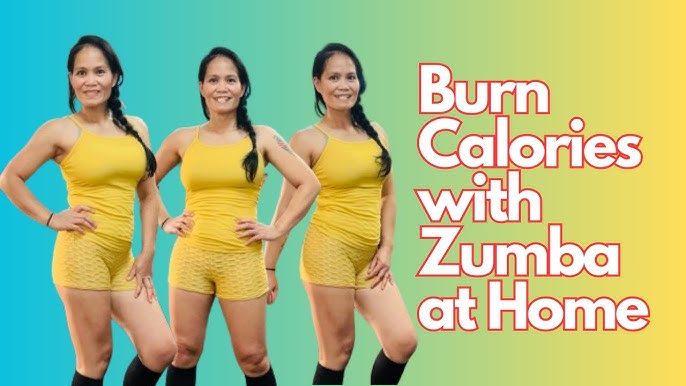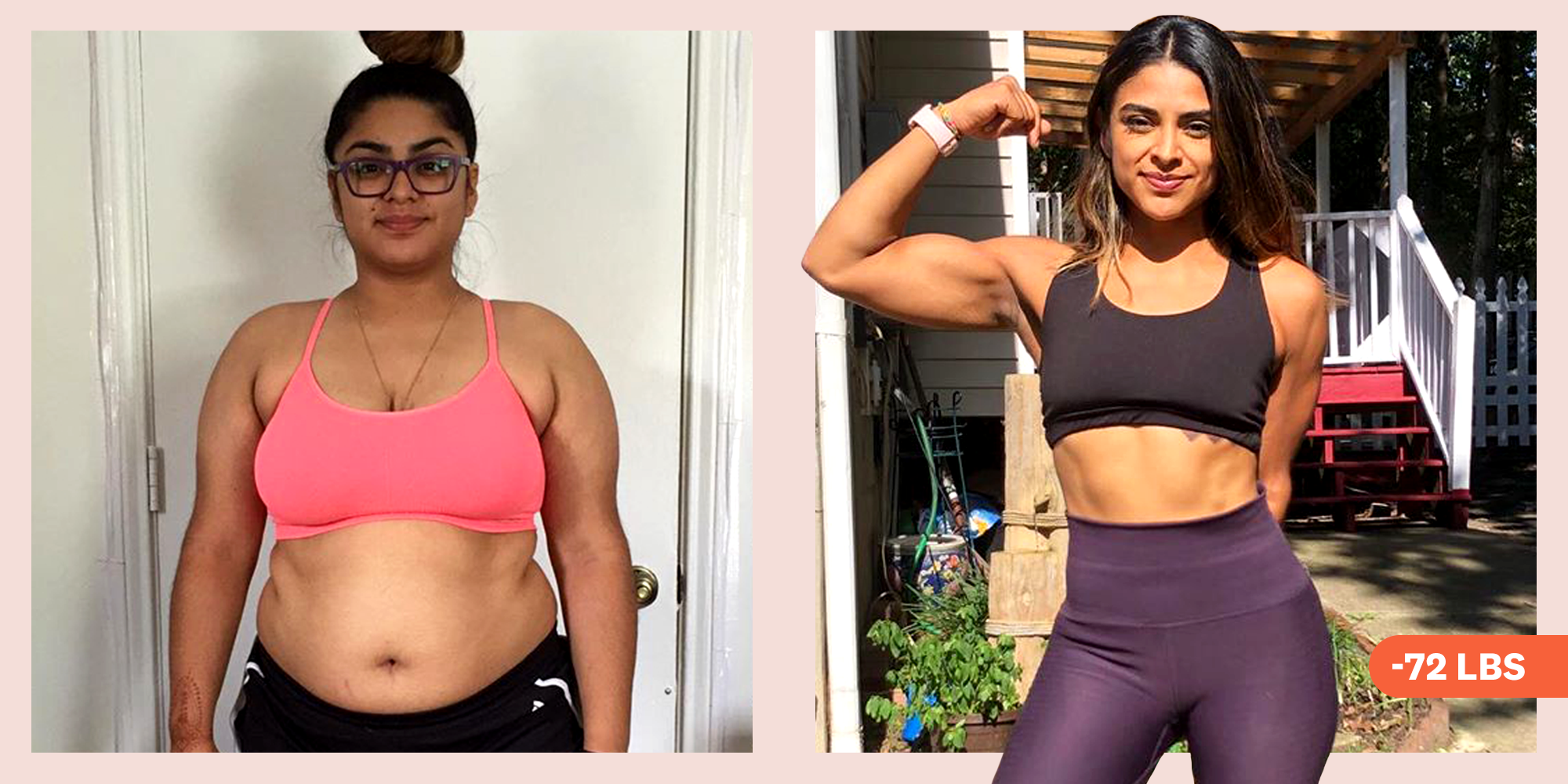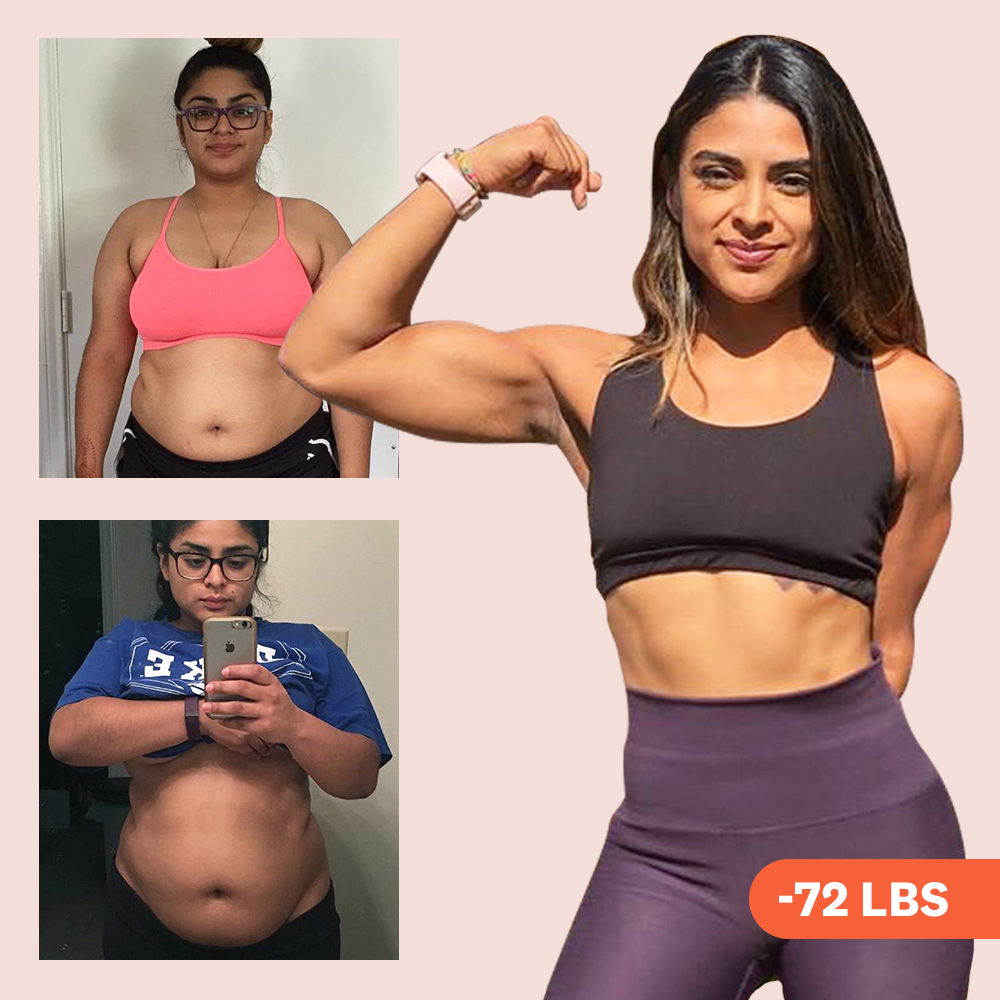
Zumba is an effective workout for weight loss. It combines high-energy dance moves with cardiovascular exercise.
Zumba has gained popularity as a fun and engaging way to shed those extra pounds. This fitness program blends Latin and international music with dynamic dance routines, making exercise enjoyable. The high-energy sessions can burn significant calories, helping in weight loss.
Additionally, Zumba improves cardiovascular health, boosts mood, and enhances coordination. Suitable for all fitness levels, it offers an inclusive environment where participants can move at their own pace. The social aspect of group classes also encourages consistent participation, which is key for sustained weight loss. Overall, Zumba provides a comprehensive workout that targets various muscle groups while keeping participants motivated.

Credit: www.womenshealthmag.com
Zumba Basics For Weight Loss
Are you looking for a fun way to lose weight and get fit? Discover Zumba! This dance workout blends Latin rhythms with easy-to-follow moves. It’s perfect for all ages and fitness levels. Let’s dive into Zumba Basics to understand how it can help you shed those extra pounds.
What Is Zumba?
Zumba is a high-energy dance workout. It combines Latin music with choreographed dance routines. You don’t need any dance experience to join a Zumba class. The steps are simple and repetitive, making it easy to follow.
In a Zumba class, you can expect:
- Warm-up: Gentle moves to get your body ready.
- Dance routines: Fast and slow rhythms to target different muscle groups.
- Cool down: Stretching exercises to relax your muscles.
Zumba is not just about dancing. It’s a full-body workout. You will burn calories, improve your cardiovascular health, and tone your muscles. Plus, it’s so much fun that you won’t even realize you’re exercising!
Here’s a quick look at the benefits of Zumba:
| Benefit | Description |
|---|---|
| Calorie Burning | Burns between 500-1000 calories per hour |
| Cardio Health | Improves heart and lung capacity |
| Muscle Toning | Targets legs, arms, and core muscles |
| Mood Boost | Releases endorphins, reducing stress |
History Of Zumba
Zumba started by accident in the mid-1990s. Alberto “Beto” Perez, a Colombian dancer and choreographer, forgot his aerobics music one day. So, he used his own mix of Latin music instead. The class loved it, and Zumba was born!
Here are some key milestones in Zumba’s history:
- 1990s: Beto developed the Zumba concept in Colombia.
- 2001: Beto brought Zumba to the United States. He partnered with entrepreneurs Alberto Perlman and Alberto Aghion.
- 2002: Zumba Fitness, LLC was established. They created an instructor training program.
- 2005: Zumba classes spread worldwide. The first Zumba DVD collection was released.
- 2012: Zumba launched Zumba Kids and Zumba Gold for older adults.
Today, Zumba is a global phenomenon. Over 15 million people take Zumba classes weekly in 180 countries. It’s a community where people come together to dance, have fun, and get fit.
Join a Zumba class and experience the joy of dancing your way to fitness!
Zumba Benefits
Zumba is a fun and effective way to lose weight. It combines dance and aerobic movements to upbeat music. This fitness craze offers numerous benefits that go beyond just weight loss. Let’s explore the physical and mental benefits of Zumba.
Physical Benefits
Zumba is a full-body workout that burns a lot of calories. This can help you shed those extra pounds. Here are some key physical benefits of Zumba:
- Cardiovascular Health: Zumba gets your heart pumping and improves cardiovascular health.
- Muscle Toning: The dance moves target various muscle groups, helping to tone your body.
- Flexibility: Zumba involves dynamic movements that increase your flexibility.
- Endurance: Regular Zumba sessions improve your stamina and endurance.
- Coordination: The dance routines enhance your coordination and balance.
Here’s a table to summarize the physical benefits:
| Benefit | Description |
|---|---|
| Cardiovascular Health | Improves heart health and blood circulation |
| Muscle Toning | Tones and strengthens muscles |
| Flexibility | Increases range of motion and flexibility |
| Endurance | Builds stamina and endurance |
| Coordination | Enhances balance and coordination |
Mental Benefits
Zumba is not only good for your body but also for your mind. Here are some of the mental benefits:
- Stress Relief: Dancing to music helps reduce stress and anxiety.
- Mood Booster: The upbeat environment lifts your mood and makes you happy.
- Social Interaction: Zumba classes provide a social setting, which can improve mental well-being.
- Cognitive Function: Learning new dance moves enhances cognitive skills and memory.
- Self-Confidence: Achieving fitness goals boosts self-esteem and confidence.
Engaging in Zumba can make you feel more energized and positive. The social aspect also plays a crucial role in mental health, as interacting with others can make you feel connected and supported.
To sum up, Zumba offers a holistic approach to fitness, benefiting both your body and mind.
Weight Loss Mechanism
Zumba is a dance workout that helps you shed pounds while having fun. This high-energy exercise combines Latin rhythms with simple dance moves. Zumba is effective for weight loss because it burns calories and engages muscles. Let’s explore the weight loss mechanism of Zumba.
Calorie Burning
Zumba burns a lot of calories. In one hour, you can burn 500 to 1000 calories. This high calorie burn helps you lose weight quickly. The dance moves keep your heart rate up. Your body uses more energy, leading to more calorie burn.
Here are some key factors that enhance calorie burning in Zumba:
- High-Intensity Intervals: Zumba includes fast and slow rhythms.
- Continuous Movement: You keep moving without breaks.
- Full-Body Workout: Every part of your body moves.
These factors make Zumba a great workout for burning calories.
Check out the table below to see how Zumba compares to other activities:
| Activity | Calories Burned (1 hour) |
|---|---|
| Walking | 250-300 |
| Running | 600-800 |
| Zumba | 500-1000 |
Muscle Engagement
Zumba works multiple muscle groups. This helps you build lean muscle mass. Lean muscle boosts your metabolism. A higher metabolism means you burn more calories, even at rest.
Here are some muscles that Zumba engages:
- Legs: Steps and jumps strengthen your calves, quads, and hamstrings.
- Core: Twists and turns work your abs and obliques.
- Arms: Arm movements tone your biceps and triceps.
Engaging these muscles helps you tone your body. It also improves your strength and endurance. This makes it easier to perform daily tasks without getting tired.
Zumba’s muscle engagement makes it an effective workout for weight loss. The combination of calorie burning and muscle engagement helps you achieve your fitness goals.
Zumba Vs. Other Workouts
Zumba has taken the fitness world by storm with its fun and energetic dance routines. Many people are turning to Zumba for weight loss due to its engaging nature. But how does it compare to other workouts? Let’s dive into Zumba vs. other popular workouts to see which one might be the best fit for your fitness goals.
Zumba Vs. Aerobics
Both Zumba and aerobics are excellent for cardiovascular health and calorie burning, but there are some key differences.
Zumba:
- Incorporates dance moves from various styles like salsa, hip-hop, and merengue.
- Focuses on fun and enjoyment, making it feel less like a workout.
- Involves high-intensity intervals, which can boost metabolism.
- Engages the entire body through dynamic movements.
Aerobics:
- Includes repetitive movements like jumping jacks and lunges.
- Often follows a structured routine with less variation in movements.
- Primarily focuses on improving heart and lung capacity.
- Can be less engaging for some people, leading to lower adherence.
Both workouts burn a significant number of calories, but Zumba’s dance element can make it more enjoyable. This enjoyment can lead to better consistency and greater weight loss over time. Here’s a quick comparison:
| Feature | Zumba | Aerobics |
|---|---|---|
| Calories Burned (per hour) | 500-800 | 400-600 |
| Engagement Level | High | Moderate |
| Variety in Movements | High | Low |
Zumba Vs. Strength Training
Strength training and Zumba serve different purposes but can complement each other well.
Zumba:
- Primarily a cardio workout, focusing on burning calories.
- Improves cardiovascular health and endurance.
- Can be done in groups, adding a social element.
- Targets weight loss through high-energy dance routines.
Strength Training:
- Focuses on building muscle mass and strength.
- Involves lifting weights or using resistance bands.
- Boosts metabolism by increasing muscle mass.
- Essential for overall body strength and bone health.
While Zumba is excellent for cardio and weight loss, strength training is crucial for muscle building and overall fitness. Combining both can provide a well-rounded fitness routine. Here’s a comparison:
| Feature | Zumba | Strength Training |
|---|---|---|
| Calories Burned (per hour) | 500-800 | 200-400 |
| Muscle Building | Low | High |
| Cardio Benefits | High | Moderate |
Incorporating both Zumba and strength training can maximize your weight loss results and overall health. Each workout offers unique benefits that can help you achieve your fitness goals.
Getting Started
Zumba is a fun and energetic way to lose weight. It combines dance and fitness moves to upbeat music. Getting started with Zumba is easy and exciting. You just need to know how to choose the right class and what basic gear you need. This guide will help you start your Zumba journey for weight loss.
Choosing A Class
Choosing the right Zumba class is important. There are many types of Zumba classes available. You can pick one based on your fitness level and preferences. Here are some tips to help you choose:
- Beginner Classes: If you’re new to Zumba, start with beginner classes. These classes are slower and easier to follow.
- Advanced Classes: If you have some Zumba experience, try advanced classes. These classes are faster and more intense.
- Specialty Classes: There are also Zumba classes for specific needs. For example, Zumba Gold is for seniors, and Zumba Kids is for children.
Check the schedule of your local gym or community center. Look for classes that fit your schedule. Here is a simple table to help you decide:
| Class Type | Best For | Intensity Level |
|---|---|---|
| Beginner | New to Zumba | Low |
| Advanced | Experienced | High |
| Zumba Gold | Seniors | Low |
| Zumba Kids | Children | Moderate |
Reading reviews can also help. See what others say about the class and the instructor. A good instructor can make your Zumba experience enjoyable and effective.
Basic Gear Needed
To get started with Zumba, you need some basic gear. Wearing the right clothes and shoes is important for comfort and safety.
- Comfortable Clothes: Wear breathable and stretchy clothes. This allows you to move freely. Avoid clothes that are too tight or too loose.
- Supportive Shoes: Choose shoes with good support and cushioning. Avoid running shoes as they might not offer the right support. Cross-training or dance sneakers are the best options.
- Water Bottle: Zumba can make you sweat a lot. Keep a water bottle handy to stay hydrated.
- Towel: Bring a small towel to wipe off sweat during breaks.
Here is a quick checklist for your Zumba gear:
| Item | Details |
|---|---|
| Clothes | Breathable, stretchy, comfortable |
| Shoes | Supportive, cushioned, cross-training or dance sneakers |
| Water Bottle | To stay hydrated |
| Towel | For wiping sweat |
Wearing the right gear helps you perform better. It also prevents injuries. With the right gear, you can enjoy your Zumba sessions and reach your weight loss goals.

Credit: www.womenshealthmag.com
Creating A Routine
Zumba is a fun and effective way to lose weight. By dancing to lively music, you can burn calories and tone your body. Creating a routine is key to achieving your weight loss goals with Zumba. A structured plan helps you stay consistent and motivated.
Weekly Schedule
To see results, it’s important to have a weekly schedule for your Zumba sessions. Aim to dance at least three to five times a week. Consistency is key to losing weight and keeping it off.
Here’s a sample schedule to get you started:
| Day | Activity |
|---|---|
| Monday | Zumba Class (60 mins) |
| Tuesday | Rest Day or Light Stretching |
| Wednesday | Zumba Class (60 mins) |
| Thursday | Strength Training (30 mins) |
| Friday | Zumba Class (60 mins) |
| Saturday | Outdoor Activity (Walking, Cycling) |
| Sunday | Rest Day |
This schedule balances Zumba classes and rest days. Rest days allow your muscles to recover. Strength training on Thursday helps build muscle, which boosts metabolism.
Feel free to adjust the schedule to fit your lifestyle. The key is to stay active and enjoy your workouts.
Mixing Styles
Mixing styles in your Zumba routine keeps things fresh and exciting. Zumba offers various styles like Zumba Toning, Aqua Zumba, and Zumba Step. Each style targets different muscle groups and offers unique benefits.
Here are some styles to consider:
- Zumba Toning: Uses light weights to tone muscles while dancing.
- Aqua Zumba: Takes place in water, reducing impact on joints.
- Zumba Step: Incorporates step aerobics for added intensity.
Switching up styles can prevent boredom and keep you engaged. Try different classes to see what you enjoy most. This variety also ensures a full-body workout, targeting different areas each session.
Here’s a mix of styles in a week:
| Day | Activity |
|---|---|
| Monday | Zumba Toning (60 mins) |
| Wednesday | Aqua Zumba (60 mins) |
| Friday | Zumba Step (60 mins) |
This variety keeps your workouts exciting and effective. Experiment with different classes to find your favorites. The more you enjoy your routine, the more likely you are to stick with it.
Success Stories
Many people have achieved their weight loss goals with Zumba. These success stories inspire and motivate others to try this fun and energetic workout. Let’s dive into some real-life transformations and hear personal testimonials from those who have experienced incredible results with Zumba.
Real-life Transformations
Zumba has changed lives. People have lost significant weight and gained confidence. Here are some standout stories:
- Sara, 32: Lost 50 pounds in one year. She started Zumba classes three times a week. She felt energized and happy. Sara shared, “Zumba made me love exercising. I looked forward to every class!”
- John, 45: Lost 30 pounds in six months. John combined Zumba with a healthy diet. He attended classes twice a week. “I enjoyed the music and dance moves,” John said. “It never felt like a workout.”
- Ana, 28: Lost 40 pounds in eight months. Ana joined Zumba with friends. They motivated each other. “We had fun and supported each other,” Ana mentioned. “It was a fantastic journey.”
These transformations show the power of Zumba. It’s not just about weight loss. It’s about feeling good and having fun. People enjoy the process and stick with it. This consistency leads to amazing results.
Testimonials
Real people share their experiences with Zumba. These testimonials highlight the positive impact:
- Emily, 35: “Zumba changed my life. I lost 20 pounds in four months. The classes were fun and exciting. I made new friends and felt supported.”
- Michael, 40: “I was skeptical at first. But after losing 25 pounds in six months, I’m a believer. The music and dance moves keep me motivated.”
- Jessica, 29: “I struggled with my weight for years. Zumba was the game-changer. I lost 35 pounds in eight months and gained confidence. It’s the best decision I ever made.”
These testimonials speak volumes. They show that Zumba is effective for weight loss. People enjoy the workout and see real results. If you’re looking for a fun way to lose weight, Zumba might be your answer.

Credit: www.youtube.com
Common Challenges
Zumba is a fun and energetic way to lose weight. Dancing to lively music can help burn calories and improve fitness. Yet, many people face common challenges when starting their Zumba journey. From staying motivated to avoiding injuries, these obstacles can make it harder to stick with the program. Let’s explore these challenges and find ways to overcome them.
Staying Motivated
Staying motivated is crucial for weight loss success. Many people start Zumba with excitement but lose interest over time. Here are some tips to keep your motivation high:
- Set Clear Goals: Write down your weight loss goals. Having a clear target helps keep you focused.
- Track Progress: Use a journal or app to track your progress. Seeing improvements can boost your motivation.
- Join a Group: Dancing with friends or a class can make Zumba more enjoyable. The social aspect keeps you engaged.
- Mix It Up: Change your routine to keep things fresh. Try different Zumba styles or music genres.
- Reward Yourself: Celebrate small victories with non-food rewards. A new workout outfit or a movie night can be great incentives.
Another effective strategy is creating a workout schedule. Consistency is key to building a habit. Plan your Zumba sessions at the same time each week. This routine helps make exercise a regular part of your life.
Avoiding Injuries
Avoiding injuries is essential to maintaining a long-term fitness routine. Zumba involves a lot of movement, so it’s important to take precautions. Here are some tips to stay injury-free:
- Warm Up Properly: Start with light stretches and slow movements. This prepares your muscles and joints for the workout.
- Wear the Right Shoes: Choose shoes with good support and cushioning. Proper footwear can prevent foot and ankle injuries.
- Listen to Your Body: Pay attention to any pain or discomfort. If something hurts, stop and rest.
- Stay Hydrated: Drink water before, during, and after your Zumba session. Hydration helps keep your muscles flexible.
- Use Proper Form: Follow the instructor’s guidance on movements. Good form reduces the risk of strains and sprains.
Creating a safe workout environment is also important. Make sure you have enough space to move freely. Remove any obstacles that could cause you to trip or fall. A clean and spacious area helps you dance without worry.
Frequently Asked Questions
What Are The Benefits Of Zumba For Weight Loss?
Zumba combines dance and aerobic exercises. It burns calories and improves cardiovascular health. It’s fun, which keeps you motivated.
How Many Calories Can You Burn With Zumba?
A one-hour Zumba session can burn between 300 to 600 calories. The exact number depends on intensity and individual factors.
Is Zumba Effective For Belly Fat?
Yes, Zumba helps reduce belly fat. It engages core muscles and increases calorie burn, aiding overall weight loss.
How Often Should You Do Zumba To Lose Weight?
For weight loss, aim to do Zumba 3-4 times a week. Consistency is key for effective results.
Conclusion
Zumba offers a fun and effective way to lose weight while enjoying energetic music and dance. It combines cardio, strength, and flexibility, making it a comprehensive workout. Try incorporating Zumba into your routine to see noticeable results. Remember, consistency is key.
Get moving, stay motivated, and watch the pounds melt away.









